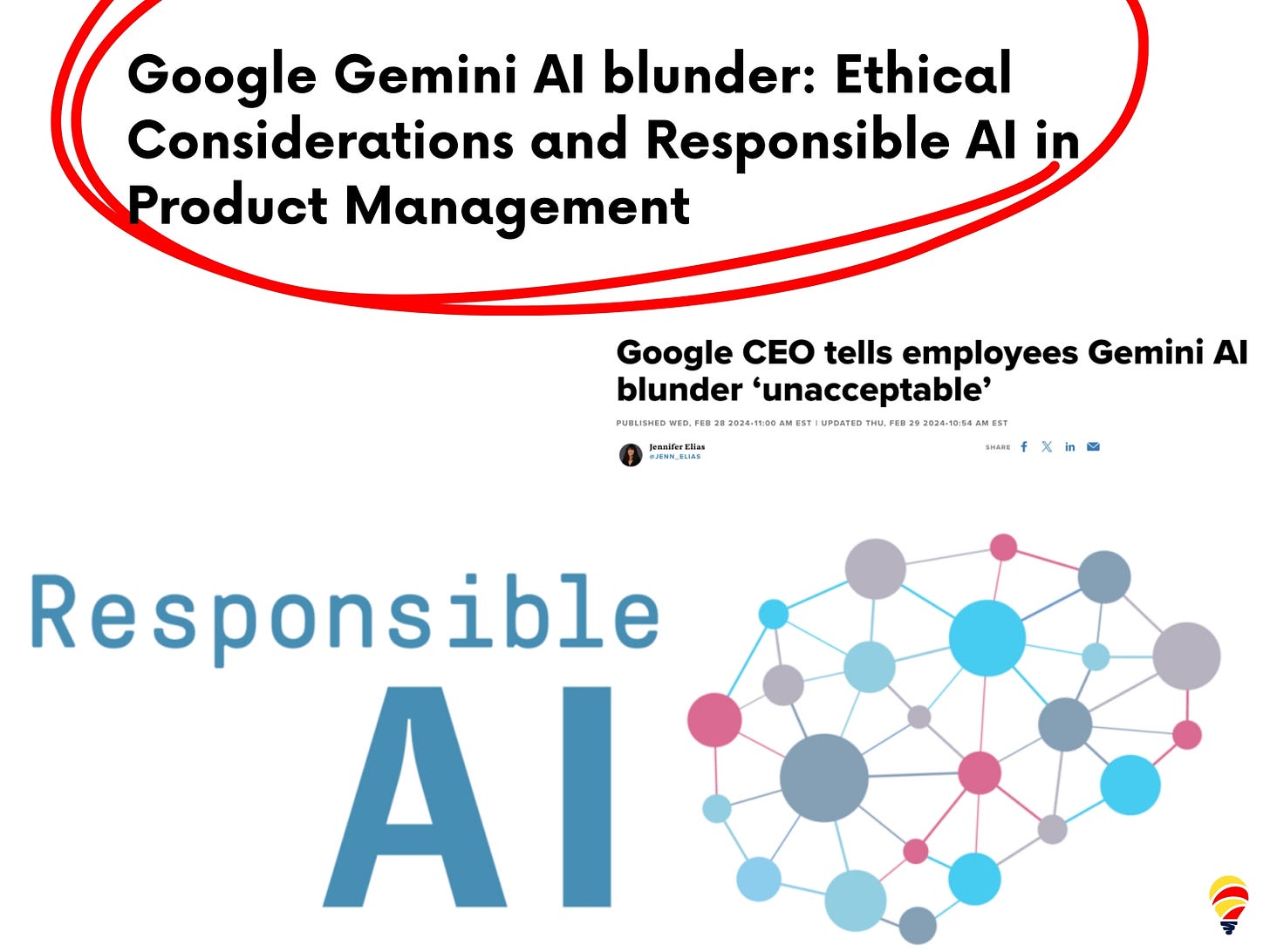Week 81 - E9 - Google Gemini AI blunder: Ethical Considerations and Responsible AI in Product Management
🌟 Don't Miss the Opportunity to Elevate Your AI Knowledge!
I am absolutely thrilled to announce the upcoming 9th edition of our exclusive 10-part newsletter series, focused on the ever-evolving world of AI. This series is crafted with care for product managers like you, who are eager to harness the power of AI in shaping future products. Whether you're …
Keep reading with a 7-day free trial
Subscribe to The Product Channel By Sid Saladi to keep reading this post and get 7 days of free access to the full post archives.


